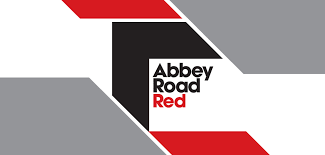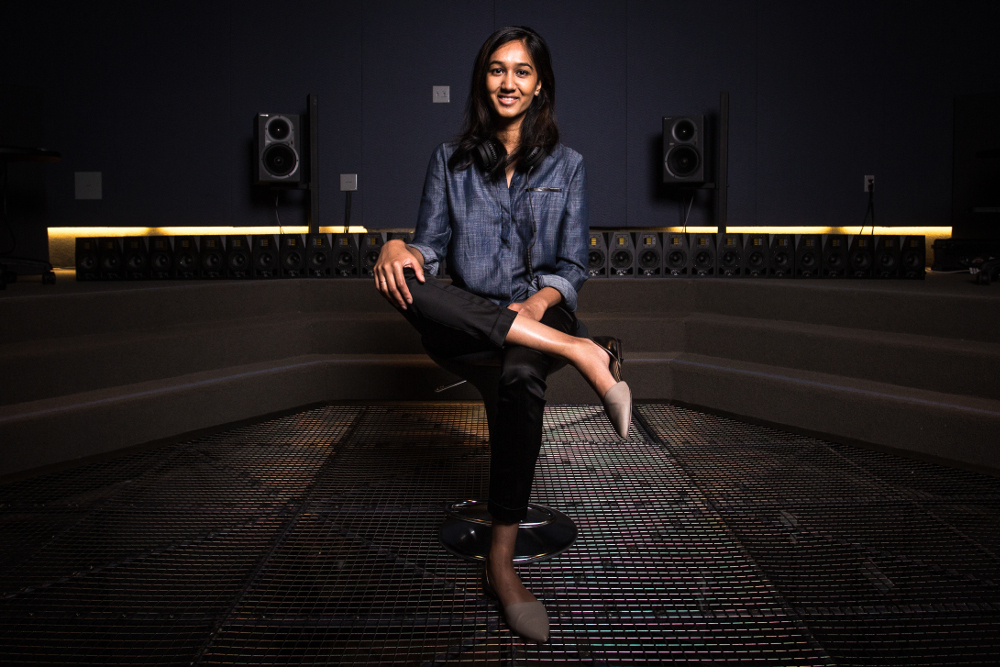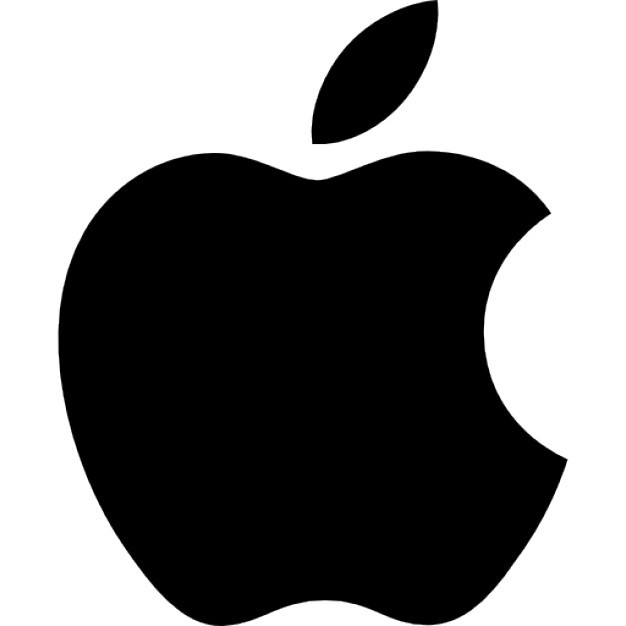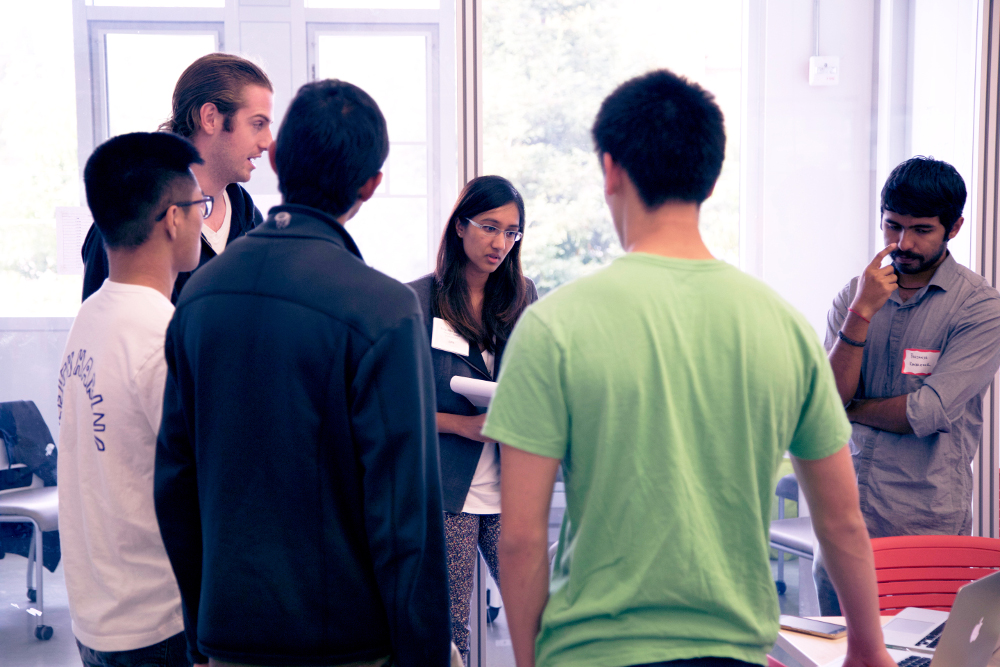Audio Career Paths: Music Technologist — Where Academics and Ambition Connect
Where is audio headed next? Figuring out the near future is instrumental to new career opportunities for music and sound professionals, and for providing exciting new sonic possibilities for people everywhere.
It used to be that understanding the industry’s direction simply meant seeing which artists were topping the charts. Today, however, the advance of exponential technologies has created an almost infinite range of options for how music, tech, and commerce can interact. Science is rapidly expanding our knowledge of what sound can do for our health and well-being, new platforms are improving delivery and execution, and the right business plan makes it all viable.
Experts who can manage the music/technology/business convergence are essential for acheiving meaningful progress— that’s where people like Priyanka Shekar come in. A New Zealand native, she’s charting a journey across academia and industry in her quest to elevate music tech.
Currently the Sector Practice Leader for the Creative Arts with the Martin Trust Center for MIT Entrepreneurship, Shekar has worked in product and business development with the likes of Shazam, BOSE, and Pandora, taught courses and workshops at universities including Stanford, Berkeley, and Tufts, and launched Stanford’s first entertainment tech startup incubator program.
As an MBA candidate in the MIT Sloan Fellows MBA program, Shekar seeks to affect major change for music tech health and lifestyle devices, in a similar realm as the Apple Watch and BOSE earbuds. Immersive experiences and spatial audio figure heavily into her plans. It’s a mission made even more urgent by the Covid-19 pandemic, with the potential to acheive deep impacts.
Want to think bigger about what your studio skills can accomplish? Looking to direct your passion for tracking, mixing, mastering, music production, and geeking out into an outlet for social good? This SonicScoop interview with Shekar will motivate you to hit that next level.
Your career is focused on the crossroads of music, tech, and business. What happens when those three components gel successfully?
I think of myself as an entertainer, engineer, and entrepreneur/executive. In the field of Music Technology, and more broadly the entertainment and media tech industry, my overarching goal has been to elevate the storytelling experience in the ways that we entertain, inform, immerse, and transcend. I am inspired by musician Brian Eno who said, “If you want to make someone feel emotion, you have to make them let go…listening to something is an act of surrender.”
The entertainment ecosystem is undergoing a digital renaissance, through the entire production chain connecting content creation to consumption, and there are a lot of rapidly innovating pieces and players. I believe that the power of connecting these disciplines and my role to collaborate via partnerships will be critical in the evolution and health of the industry.
Steve Jobs also mused on the secret to Apple’s success when he said, “It’s in Apple’s DNA that technology alone is not enough. It’s technology married with liberal arts, married with the humanities, that yields the results that make our hearts sing.” He meant it as a description of the kind of thinking—multidisciplinary, sensitive to human needs and potential—needed to build their products.
Creative success happens when disparate fields are connected together, when distinct ways of seeing the world are brought to bear on a singular problem. More so, the music industry is in a state of constant evolution, and everyone involved – from artists to executives to technologists – must have the inter-disciplinary skills to both adapt to a rapidly shifting landscape and to forge exciting new creative paths.
How Audio Gets Academic
You have consistently woven academia into your personal evolution. What attracts you to a particular program? How have these various academic experiences shaped you?
Stanford and CCRMA (Center for Computer Research in Music and Acoustics) was like a Disneyland for creatives. The whole spectrum is supported from composers using technology, to the DSP engineers who are building that technology, and everything in between.
I chose the MIT Sloan Fellows MBA program because I wanted to learn and collaborate with experienced leaders from diverse industries and backgrounds, and tackle what we call “wicked edgy problems” here at Sloan. I am accelerating my career at the niche intersection of music, technology, and business, and I am grateful to have MIT backing me in this specific endeavor.

MIT’s Sloan School of Management makes serious engineering available to many sectors, including audio.
The Sloan School of Management within MIT seems like the perfect place to do so as a top-ranked business school within an elite engineering university. It’s a double shot. MIT and the Boston setting are also home to world-class audio companies I have held strategic partnerships with previously such as BOSE and Sonos.
The program has been really eclectic and cross-pollinating in the way we are interacting as Sloan Fellows. There are many fellow entrepreneurial leaders, and my differentiation in music technology expertise has already sparked academic and commercial collaboration opportunities. Overall, my time in and out of academia has helped me transition from an academic mindset to a business mindset.
If I could give one piece of advice from my learnings in academia it would be: “Do what you love, and love what you do. And don’t stop learning or experimenting.” I am inspired by avant-garde composer John Cage who published “10 Rules for Students, Teachers, and Life” that states, “Nothing is a mistake. There’s no win and no fail. There’s only make.” It is an opening to experiential learning if you can look past your ego.
Over this time I have learned to approach my career with a growth mindset, which has helped me connect the dots between who I am, what I do, and what I believe.
Are you part of the creative technology scene now at MIT?
I am a Sector Practice Leader for the Creative Arts with the Martin Trust Center for MIT Entrepreneurship, with a mandate to stimulate MIT’s creative ecosystem for entrepreneurship and innovation university-wide for its 11,000 students and 30-odd departments, and operate as a liaison to the ecosystem for potential corporate partners to engage. This is the perfect fit for me to plug in and contribute to the ecosystem, given my previous work with universities and corporate partners.
The Crossover Between Audio, Health, and Well-Being
Your experiences are leading you to explore immersive media devices for health and lifestyle. When did this start to become your personal angle, and why?
My previous experience in the entertainment technology industry created strategic partnerships between academia, industry, and startups to propel innovation and talent. There is now a challenging opportunity to lead the crossover of entertainment technology and health, wellness, and data science, in an ecosystem that is increasingly complex and fragmented.
Health and wellness technology has advanced in its dipstick reporting, with increasingly sophisticated testing and imaging, to always-on wearable monitors, brewing a tsunami of data for artificial intelligence to chew on. I bought an Apple Watch specifically for its EKG and heart monitoring.
Though I am passionate about this next frontier personally and professionally, I realize that we still only have so little data over so little time, and we cannot underestimate the power of connecting disciplines to create personal technologies which heal, inform, and entertain to serve our wellbeing. Our current pandemic has rippling global impacts, and only reiterates this critical trend.
That’s a fascinating angle. What are the specific applications that the health/wellness tech sector has for music education, brain training, rehabilitation, and related fields?
The applications are many and diverse—here are a few examples from my projects.
I did a scientific study on vocal pitch-matching in trained musicians vs. untrained individuals. In layperson terms, it provided empirical support about how extensively we are “wired” for vocal sound. Practically, it leads to important implications for music pedagogy and its consumer and healthcare applications.
For example, consumer products targeted to musically naive people—such as popular Karaoke games—can be easily improved by implementing diagnostic procedures with their simple pitch-matching abilities, phenotyping, and offering individually-customized sing-along setups. Potential medical applications include singing training tools for patients suffering from aphasia or lung disease. In music education, there are important applications in vocal training to match a choir or piano accompaniment.
At CCRMA I took a great class called “Neuroplasticity and Musical Gaming,” taught by Dr. Poppy Crum, Chief Scientist of Dolby Laboratories. My team created a VR piano training app to show cross-modal memory improvements to the users. This demonstrated how sensory technology could be utilized in gaming contexts that alter the organization of the brain in a controlled manner, that is to say, to greatly facilitate organized learning and cognition of a musical task.
There is exciting and significant potential to improve musical education and training in children as well as adults. Customization, personalization, and use for rehabilitation are obvious primary use cases.
Those are some welcome applications for music and sound! What are some overall milestones you’ve achieved in the field so far?
I have held roles in product and business development, working and partnering with companies including Shazam, BOSE, and Pandora. I have taught courses and workshops at universities including Stanford, Berkeley, and Tufts, and launched Stanford’s first entertainment tech startup incubator program.
I have also founded startups through the Stanford Graduate School of Business and its accelerator programs including Stanford StartX. Before starting my MBA, I was Program & Partnership Director for an educational non-profit working with 40 top-tier universities including Stanford and UC Berkeley; 50 companies including Bose and Pandora; and 15,000 STEM students globally.
I currently serve as an advisor and industry expert with some of the top incubators in the industry including Abbey Road Red, and Nashville Entrepreneur Center.
Artists and Audio Pros: Taking Part
What are examples of ways that artists, audio professionals and/or tech heads can launch or take part in social good projects, while leveraging what they do best?
They can join or start an initiative at their company, or even join an external design challenge or a hackathon in the entertainment tech space.

Abbey Road Studios is supporting music tech development via its Abbey Road Red incubator.
Social good isn’t always an obvious topic for these kinds of events. However, working with an educational non-profit, I have had experience running, for example, a university design challenge to create an artist marketing campaign on the Pandora streaming platform that promoted charitable causes that Pandora’s artists supported. Many events are fairly open to the direction you want to take them in as a participant.
Some of the popular hackathons include SXSW, Music Tech Fest, SF MusicTech Summit, and Abbey Road Red Hackathon for potential startups, and MIT’s Hacking Arts for students. Event organizers are adapting to virtual formats during COVID.
What are the challenges that exist from doing all this in a pandemic? Conversely, what might be the opportunities?
In the space of social good, mental and physical wellness during COVID and in quarantine are a particular challenge for the everyday consumer. This problem applies to virtually everyone, and particularly to high-risk and isolated populations such as the elderly and immunocompromised. It is meaningful because we have a new all-virtual paradigm for work, school, and play, and this trend will continue into the future.
The question I have been asking is: “How can we empower ourselves for physical and mental self-care while we live in isolation in this pandemic, and beyond?”
A multitude of factors affect our health and wellness in this virtual locked-down climate, resulting from the constraints of isolation, and the uncertainty and risk of living through an ongoing pandemic.
An opportunity exists in the form of breaking down the four walls we are forced to isolate in — how do we get a change of scene, travel, take a break, and also continue to explore, learn, and grow, without feeling like time has stood still? Immersive media experiences, including VR/AR and spatial audio which take our senses elsewhere may hold the key.
High-risk COVID patients live in fear of catching the virus, and are only able to get treatment post-infection like the rest of us. Another opportunity reveals itself, especially now—how can we empower patients and other concerned and proactive individuals towards frequent self-monitoring and early detection for their peace of mind and wellbeing? Wearables, and hearables, that communicate vitals and symptoms using a variety of media are an interesting way forward in patient-empowered healthcare.
Kiwis Kickin’ It
There’s a certain mystique to many about being from New Zealand. What does that mean to you?
I definitely believe as Kiwis we “punch above our weight!” Despite our lack of human and natural resources, we have a strong history of innovation, which I am proud of. It stems from our can-do attitude and the ingenuity required in having to get more done with less.
Let’s not forget about the music! What’s a recent addition to your playlist?
I am listening to the Ungodly Hour album by Chloe x Halle—Beyonce’s protegés. I really love their version of new school R&B, it’s full of textured layers and very detailed in its construction. The duo harmonize with chemistry, and their vocals just glide over the beat.
- Interview by David Weiss
Please note: When you buy products through links on this page, we may earn an affiliate commission.










[…] It used to be that understanding the industry’s direction simply meant seeing which artists were topping the charts. Today, Read more… […]